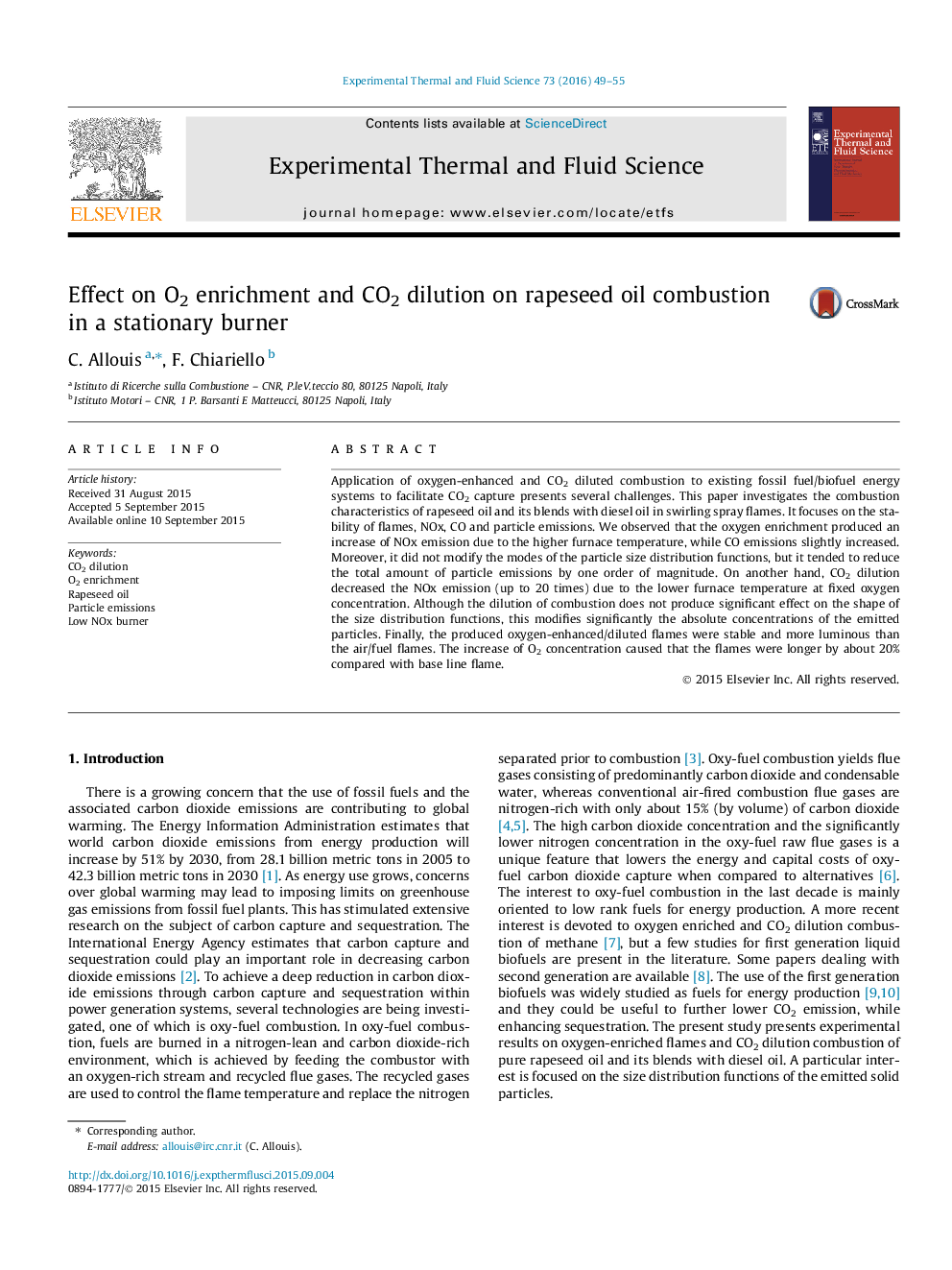| Article ID | Journal | Published Year | Pages | File Type |
|---|---|---|---|---|
| 651065 | Experimental Thermal and Fluid Science | 2016 | 7 Pages |
Highlight•CO2 dilution represents a way to reduce particle emission during combustion of rapeseed oil and its blends with diesel oil.
Application of oxygen-enhanced and CO2 diluted combustion to existing fossil fuel/biofuel energy systems to facilitate CO2 capture presents several challenges. This paper investigates the combustion characteristics of rapeseed oil and its blends with diesel oil in swirling spray flames. It focuses on the stability of flames, NOx, CO and particle emissions. We observed that the oxygen enrichment produced an increase of NOx emission due to the higher furnace temperature, while CO emissions slightly increased. Moreover, it did not modify the modes of the particle size distribution functions, but it tended to reduce the total amount of particle emissions by one order of magnitude. On another hand, CO2 dilution decreased the NOx emission (up to 20 times) due to the lower furnace temperature at fixed oxygen concentration. Although the dilution of combustion does not produce significant effect on the shape of the size distribution functions, this modifies significantly the absolute concentrations of the emitted particles. Finally, the produced oxygen-enhanced/diluted flames were stable and more luminous than the air/fuel flames. The increase of O2 concentration caused that the flames were longer by about 20% compared with base line flame.
